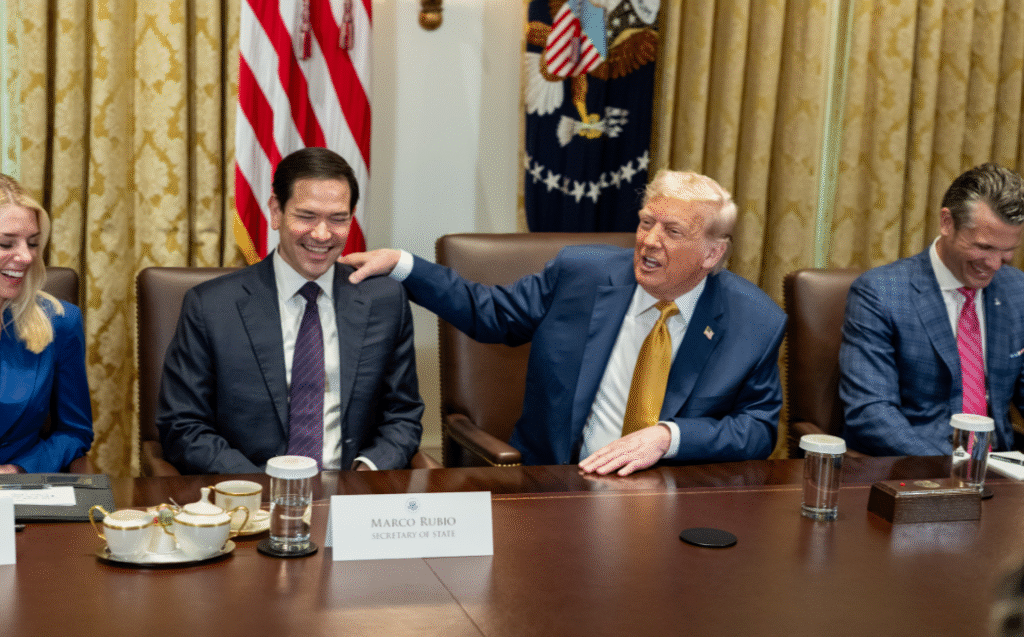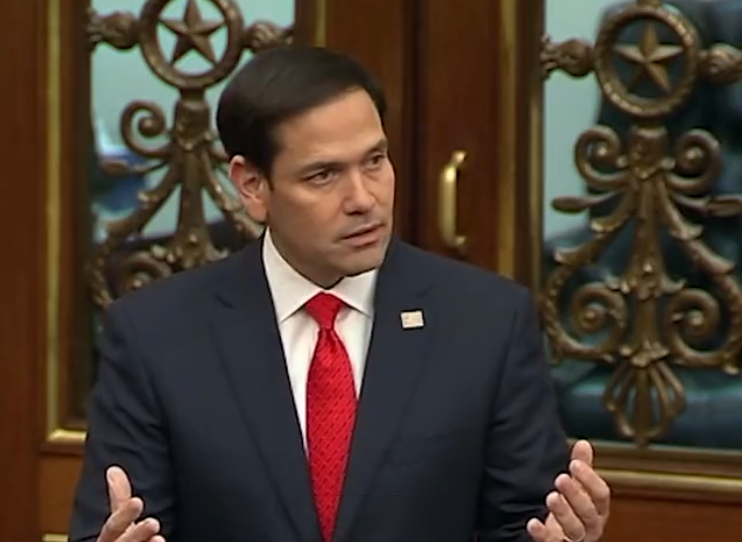During a high-stakes ASEAN summit, U.S. Secretary of State Marco Rubio confirmed that President Trump has been formally invited to visit China and is likely to accept. Rubio defended America’s sweeping global tariff policy, stating it targets unsustainable trade deficits. He also announced major agreements on civil nuclear cooperation with Malaysia, new U.S. defense sales in Asia, and a strong push for cybersecurity collaboration to counter rising digital threats.
Marco Rubio Reveals U.S. Plans, Tariffs, and Cyber Deals in Asia
U.S. Secretary of State Marco Rubio concluded a major diplomatic visit at the ASEAN summit, calling it one of the most productive regional engagements in recent years. From confirming an official invitation for President Trump to visit China, to outlining America’s new global tariff framework, to forging strategic defense and nuclear partnerships, Rubio’s visit was packed with key developments.
Rubio emphasized that ASEAN is the primary channel through which the United States engages Southeast Asia diplomatically. He reiterated the U.S. identity as a Pacific nation — not just geographically, but economically and culturally — with deep-rooted relationships across the region. Citing the U.S. as the single largest source of foreign direct investment in Southeast Asia, Rubio stressed that Washington is not just a regional stakeholder, but a long-term partner.

One of the most significant diplomatic moments came during Rubio’s bilateral meeting with Chinese Foreign Minister Wang Yi. He described it as a “very productive” and “constructive” engagement — not a negotiation, but an important step in ensuring continued communication between two global powers. Rubio confirmed that President Donald Trump has been invited to China, and both leaders are eager to make the visit happen. The U.S. will now work with Beijing to finalize a date.
On the economic front, Marco Rubio defended the United States’ newly announced global tariffs, set to take effect on August 1st. He clarified that these are not aimed at any one country or region, including ASEAN. Instead, the tariffs are a response to decades of mounting trade deficits with countries across Europe, Asia, North America, and beyond. Rubio said these imbalances had become unsustainable, and the U.S. had no choice but to act. However, he also opened the door for bilateral negotiations with countries that wish to adjust the tariff terms.
Rubio also highlighted that trade uncertainty had to be replaced with clarity, and that’s why the August 1 implementation date is important for global markets. While stressing that these tariffs are global, he hinted that individual agreements may still be possible before or after that date, depending on negotiations.
In terms of tangible achievements, Marco Rubio announced the signing of a Memorandum of Understanding with Malaysia on civil nuclear cooperation — a major step toward cleaner and safer energy development. In addition, the U.S. also finalized several defense agreements and arms sales with select ASEAN partners. Though details remain confidential for now, Rubio confirmed they would be made public soon and are intended to strengthen regional security cooperation.
One of the most discussed themes of the summit was cybersecurity. Rubio warned about the growing number of cyber criminals and online scams targeting not just Americans but also Southeast Asian citizens. He expressed concern over transnational scam networks and digital fraud operations that are harming people across borders. He stressed that countries must work together to address these threats — especially as the digital economy expands.
Rubio emphasized that Southeast Asia is expected to contribute nearly two-thirds of global economic growth over the next 25 to 30 years, much of which will be driven by digital platforms. But for these platforms to succeed, they must be secure — from cybercriminals and from hostile state actors. He called for collective action among ASEAN members to build strong digital defenses and resilience across the region.
Another milestone Rubio marked was the 30th anniversary of U.S.-Vietnam diplomatic relations. He stated that the U.S. intends to honor this relationship not just with high-level meetings but with real, actionable partnerships in trade, security, and education.
When asked about his meeting with Russian Foreign Minister Sergey Lavrov earlier in the day, Rubio declined to share specific details, only saying it was related to prior discussions and part of broader global dialogue.
Marco Rubio confirmed that he held bilateral meetings with nearly all ASEAN member states during the summit. The tone of each meeting was described as warm and cooperative, reflecting strong U.S.-ASEAN ties and shared goals.
In his closing remarks, Rubio expressed confidence that the groundwork laid during this summit will carry into the ASEAN Leaders’ Meeting in October, where more concrete deliverables are expected. He called the overall summit experience “very, very positive,” highlighting America’s long-term commitment to the Indo-Pacific and a future of stronger multilateral cooperation.

